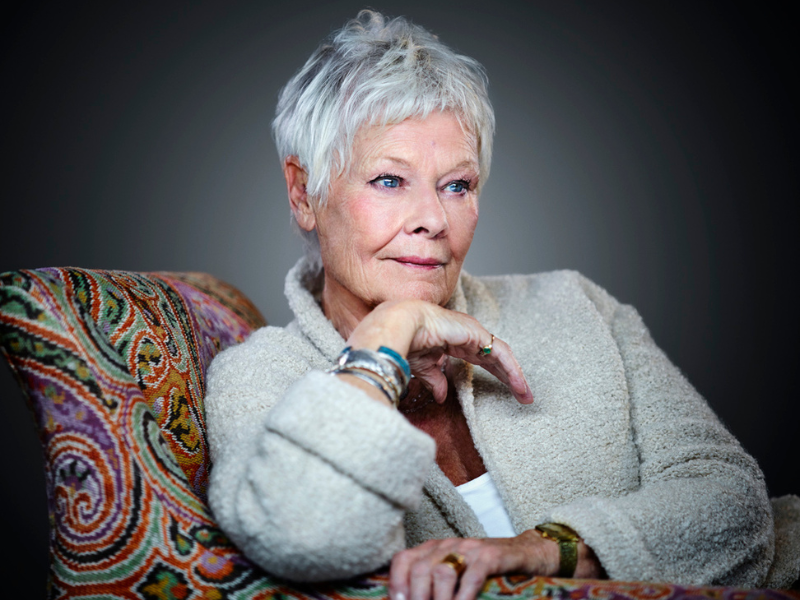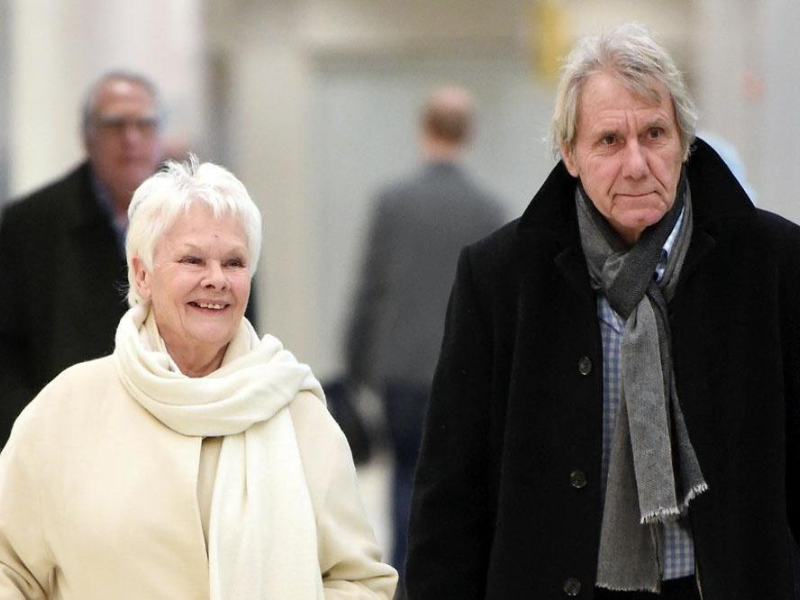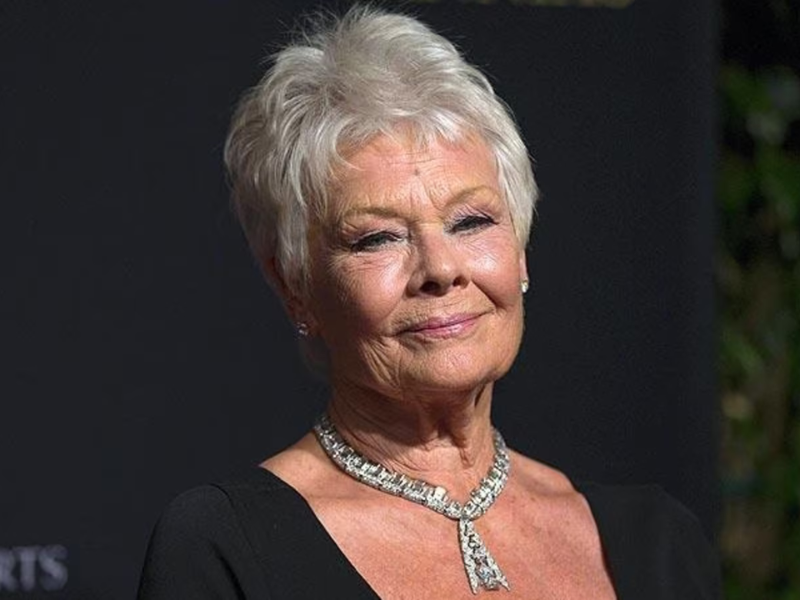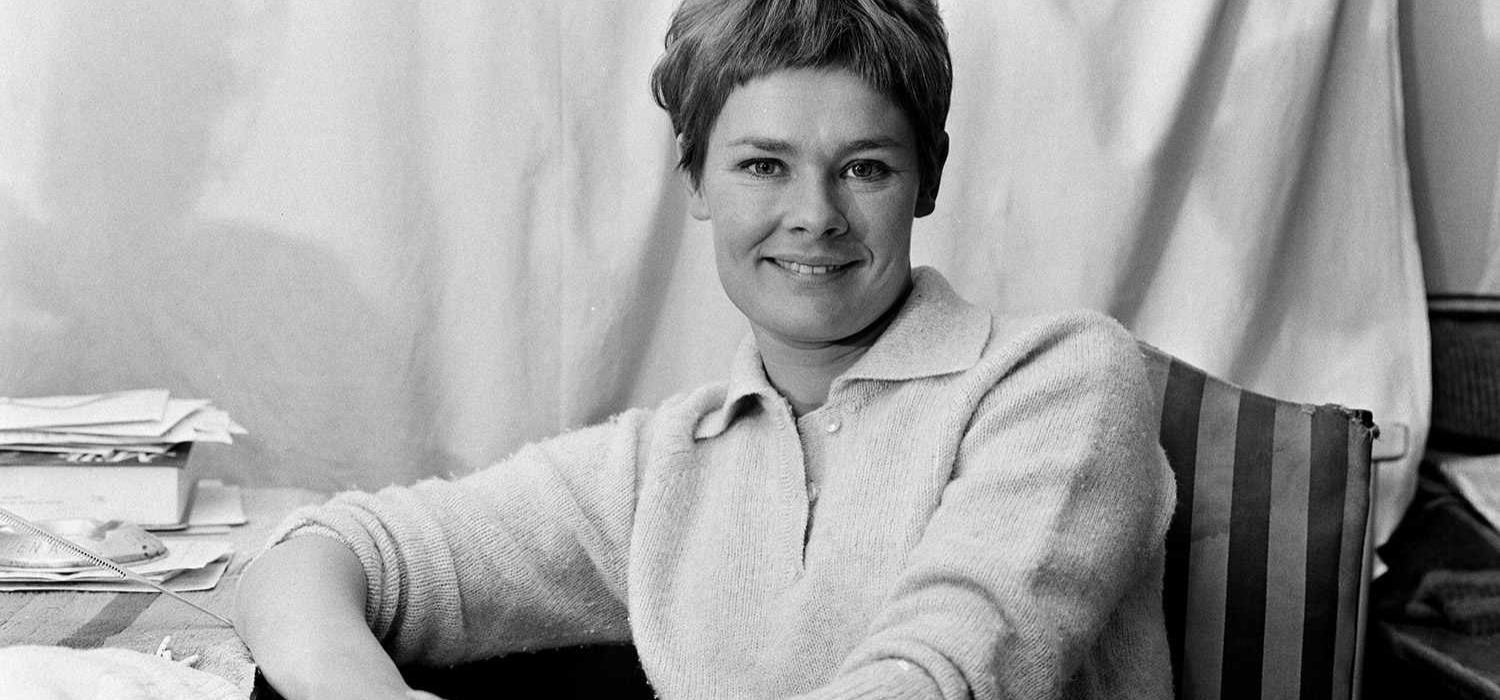Introduction: A National Treasure with Global Impact
Few actors have managed to embody both the heart of British theatre and the glamour of international cinema quite like Dame Judi Dench. With a career spanning over six decades, she is more than an actress—she is a cultural icon, revered for her extraordinary versatility, commanding stage presence, and remarkable ability to bring depth to every role she undertakes. From Shakespearean heroines to modern film powerhouses, Dench’s legacy is one of timeless grace and undeniable brilliance.
Her journey is not merely about performing but about shaping the very essence of acting itself. Whether in the intimate halls of the Royal Shakespeare Company, on the grand stages of the West End, or across global cinema screens, Dame Judi Dench has remained a symbol of dedication, artistry, and inspiration.
Early Life and Family Background
Judith Olivia Dench was born on 9 December 1934 in Heworth, York, England. Her father, Reginald Arthur Dench, was a doctor who worked at York’s Theatre Royal, while her mother, Eleanora Olave, was of Irish descent and deeply supportive of her daughter’s artistic pursuits. Growing up in a family where theatre was both admired and accessible, Judi was naturally drawn to the stage from an early age.
The environment of York, steeped in history and culture, provided fertile ground for Dench’s early curiosity about performance. Though shy as a child, she developed a fascination with storytelling, music, and movement, all of which would later define her craft.
Discovering Theatre and Training at the Central School
Dench’s formal training began at the Central School of Speech and Drama in London. At first, she considered a career in set design, but her passion for performing soon became undeniable. At the Central School, she honed her voice, movement, and interpretative skills, quickly establishing herself as a student of extraordinary promise.
Teachers noted her intensity and emotional range, qualities that would make her one of the most compelling performers of her generation. In 1957, she joined the Old Vic Company, one of the most prestigious theatre troupes in England, and made her professional debut as Ophelia in Hamlet.
The Early Shakespeare Years
Shakespeare’s plays became the foundation of Dench’s career. In her early years, she portrayed a range of heroines, from Juliet in Romeo and Juliet to Lady Macbeth in Macbeth. Critics admired not only her technical mastery of Shakespearean language but also her ability to humanize complex characters, bringing raw emotion and authenticity to the stage.
Her performances at the Royal Shakespeare Company (RSC) cemented her reputation. As Rosalind in As You Like It, Dench charmed audiences with wit and warmth, while her portrayal of Viola in Twelfth Night showcased her remarkable balance of comedy and poignancy.
Establishing Herself in British Theatre
By the 1960s and 1970s, Judi Dench was recognized as one of the leading actresses of her generation. Her work at the RSC and the National Theatre demonstrated an unparalleled range. She excelled in tragic roles, comedic parts, and everything in between.
Theatre critics praised her not only for her powerful delivery but also for her intimate connection with the audience. She made Shakespeare accessible, relatable, and emotionally charged, ensuring that classical theatre continued to thrive in modern times.
Transitioning to Television and Early Screen Roles
While theatre remained Dench’s first love, she gradually expanded her repertoire into television and film. Her early television appearances included adaptations of classics and original dramas, where she demonstrated a natural ease in front of the camera.
One of her most beloved early screen roles was in the BBC sitcom A Fine Romance (1981–1984), in which she starred alongside her real-life husband, Michael Williams. The series allowed audiences to witness her comedic timing, proving that Dench was equally skilled in lighthearted roles as she was in intense Shakespearean drama.
Film Career in the 1960s–1980s
Dench’s first film role came in 1964, when she played a supporting part in The Third Secret. Throughout the 1960s and 1970s, she appeared in various British films, though her cinematic career developed more slowly than her theatre acclaim.
Her breakthrough came with films such as A Room with a View (1985), in which she portrayed Eleanor Lavish, a free-spirited novelist. This performance demonstrated her ability to shine in ensemble casts, even in smaller roles, capturing attention with her sharp wit and commanding presence.

Marriage to Michael Williams
In 1971, Judi Dench married fellow actor Michael Williams. Their marriage became one of the most enduring partnerships in British theatre and film. Together, they performed in productions both on stage and on television, developing a reputation as one of Britain’s most beloved acting couples.
The marriage was marked by warmth, humor, and mutual support. Dench often credited Williams for grounding her life, providing stability amid the demands of her career. They had one daughter, Finty Williams, who followed in her parents’ footsteps and became an actress in her own right.
Personal Loss and Resilience
Tragedy struck in 2001 when Michael Williams passed away after a battle with lung cancer. Dench was devastated, yet she continued to find strength in her work and family. Her resilience during this period earned her even greater admiration from the public, who respected not only her artistry but her personal courage.
Despite profound loss, Dench continued to perform at the highest level, channeling her grief into powerful and emotionally resonant roles that touched audiences around the world.
The Bond Franchise: Reinventing M
One of the defining moments in Dench’s career came in 1995, when she was cast as “M” in GoldenEye, the James Bond film that reintroduced the spy series to a new generation. Her portrayal of the head of MI6 was groundbreaking—not only because she was the first woman to play the role but because she redefined the character as a formidable and uncompromising leader.
Dench’s M was authoritative, sharp, and morally complex. She held her own opposite Pierce Brosnan and later Daniel Craig, becoming one of the most beloved figures in the franchise. Her performance in Skyfall (2012), where her character faced personal and professional reckoning, was widely acclaimed and added emotional depth rarely seen in Bond films.
The role brought Judi Dench to the attention of global audiences, solidifying her status as an international star while demonstrating her ability to reinvent iconic roles for modern times.
Academy Recognition and Film Awards
Though Judi Dench had long been revered in theatre, her international film career soared in the 1990s and 2000s. She won the Academy Award for Best Supporting Actress for her performance as Queen Elizabeth I in Shakespeare in Love (1998)—a role lasting just eight minutes but leaving an indelible mark.
Her filmography from this era reads like a collection of masterpieces:
- Mrs. Brown (1997) – as Queen Victoria, exploring the monarch’s personal grief and friendship.
- Chocolat (2000) – as Armande, a feisty widow challenging convention.
- Iris (2001) – as Iris Murdoch, delivering a heartbreaking portrayal of the novelist’s struggle with Alzheimer’s disease.
- Notes on a Scandal (2006) – as Barbara Covett, a chillingly complex teacher.
- Philomena (2013) – earning worldwide praise as a mother searching for her lost son.
Each role reflected Dench’s unmatched ability to embody vastly different characters, always with authenticity and emotional power.
A Voice Beyond Acting: Activism and Public Work
In addition to her career, Dame Judi Dench has been a prominent advocate for the arts and various social causes. She has spoken out on behalf of charities, supported theatre preservation, and campaigned for environmental protection.
Her influence extends far beyond performance. As a public figure, she represents compassion, humility, and a tireless dedication to cultural enrichment. Whether addressing arts funding or human rights issues, Dench uses her platform to uplift causes that reflect her values.

Early Film Appearances: Establishing a Screen Presence
Although Judi Dench was already celebrated on stage, her transition to film was gradual. Her early screen performances reflected the same commitment she brought to theatre—carefully developed characters, subtle expressions, and a depth that made even minor roles memorable. She didn’t immediately chase fame but instead treated film as another medium to tell stories with truth and precision.
Breakthrough Roles in Cinema
By the late 1980s and early 1990s, Dench was no longer simply a respected stage actress who occasionally took film roles—she was carving her place as a formidable film presence. Productions such as A Room with a View introduced her to international audiences. While her roles varied in size, her performances carried weight, creating anticipation for every project she joined.
Award-Winning Performance in Mrs Brown
One of the most significant turning points came with her portrayal of Queen Victoria in Mrs Brown (1997). The film, centered on Victoria’s deep bond with John Brown, highlighted Dench’s ability to portray both regal command and human vulnerability. Her performance earned widespread acclaim, with critics praising her for revealing the loneliness behind the crown. This role secured her position as one of the greatest screen actresses of her time.
Hollywood Recognition: Shakespeare in Love
In 1998, Dench stunned audiences with her portrayal of Queen Elizabeth I in Shakespeare in Love. With less than ten minutes of screen time, she managed to dominate the film, winning the Academy Award for Best Supporting Actress. Her performance demonstrated her gift for precision—every glance, pause, and line delivery carried impact. This moment cemented her international stardom, showing that screen time was irrelevant when the talent was undeniable.
The Iconic “M” in the James Bond Franchise
Perhaps one of her most widely recognized roles is that of “M” in the James Bond series. First appearing in GoldenEye (1995), Dench redefined the role of the MI6 chief. Her M was tough, intelligent, and unafraid to challenge Bond himself. In films like Casino Royale and Skyfall, her performance revealed emotional layers rarely associated with the character. Her departure from the role in Skyfall was both cinematic and personal, leaving audiences with a sense of loss equal to saying farewell to an old friend.
Range and Versatility Across Genres
Dench has consistently proven her versatility, moving seamlessly between historical dramas, thrillers, literary adaptations, and contemporary stories. Whether portraying a schoolteacher in Notes on a Scandal, a woman uncovering her past in Philomena, or stepping into lighter films like The Best Exotic Marigold Hotel, she has maintained a remarkable ability to adapt to diverse genres while always staying authentic.
International Acclaim and Award Recognition
Over her film career, Dench has received numerous awards—Academy Awards, BAFTAs, Golden Globes, and Olivier Awards. Her accolades not only celebrate individual performances but also acknowledge her enduring contribution to cinema. Critics consistently note her ability to elevate a script, often turning good films into great ones through her artistry.
Later Career and Continued Relevance
Even in her later years, Dench has shown no signs of fading into the background. Projects like Victoria & Abdul and Belfast demonstrate her continued command over the screen. Her willingness to embrace challenging roles, often exploring themes of memory, resilience, and humanity, has kept her relevant to new generations of filmgoers.
Influence on Modern Film Culture
Dench’s film career has shaped the way audiences and filmmakers perceive acting. She has become a benchmark for excellence—her name synonymous with authenticity and skill. Directors often speak of her professionalism and unique ability to transform words on a page into deeply human experiences.
A Symbol of British Acting Excellence
Dame Judi Dench has become much more than an acclaimed actress—she is a cultural symbol. Her career embodies the highest standards of British theatre and cinema, and her artistry has come to represent a kind of timeless sophistication. When audiences worldwide think of distinguished British performers, Dench’s name is almost always among the first mentioned.
Elevating the Role of Women in Film and Theatre
Dench has consistently chosen roles that challenged traditional portrayals of women. From monarchs to secret service chiefs, her characters often held power, depth, and complexity. Her M in the Bond franchise redefined what authority looked like in action films, paving the way for female characters to be seen as leaders rather than background figures.
Mentorship and Influence on Younger Generations
Beyond her performances, Dench has also influenced countless younger actors. Many British performers, from stage to screen, cite her as a mentor or inspiration. Her collaborative spirit, humility, and generosity have earned her admiration not only from audiences but also from colleagues who view her as a guiding force in the industry.
Recognition and Honors
Over her lifetime, Dench has been awarded numerous honors beyond film and theatre accolades. In 1988, she was made Dame Commander of the Order of the British Empire (DBE), cementing her place as a national treasure. Later recognitions, including special BAFTA awards and international tributes, underline the respect she commands globally.

Cultural Impact Across Generations
Dench has a unique ability to remain relevant across age groups. Older generations admire her Shakespearean mastery, middle-aged audiences recall her as Queen Victoria or M, and younger viewers know her from films like Philomena or The Best Exotic Marigold Hotel. This broad appeal highlights her rare gift of transcending generational divides, ensuring her legacy remains alive in popular culture.
A Voice for Social Causes
Throughout her career, Dench has also used her platform to advocate for causes close to her heart, including environmental issues, arts funding, and humanitarian concerns. Her willingness to speak out has amplified her influence, showing that her role as a cultural icon extends far beyond acting.
The Personal Side of a Public Figure
Despite her fame, Dench has always retained a sense of humility and authenticity. Known for her warmth and humor, she has been described as approachable and down-to-earth by peers. This balance—commanding respect while staying relatable—has helped her maintain a lasting bond with audiences worldwide.
Enduring Through Challenges
Dench’s later years have not been without challenges. She has spoken openly about her vision loss caused by macular degeneration, yet she continues to act, proving her resilience and commitment to her craft. This openness has not only inspired audiences but also shed light on how passion and perseverance can overcome obstacles.
A Timeless Legacy in Arts and Culture
Dame Judi Dench’s journey is not just about the roles she has played but about the standard she has set for artistry. Her career reflects the importance of dedication, craft, and truth in performance. She leaves behind a legacy that future generations of actors will study, admire, and aspire to emulate.
Conclusion: The Grace That Endures
The story of Judi Dench is one of grace, resilience, and timeless brilliance. From the Shakespearean stage to the glamour of Hollywood, she has consistently proven that acting is not about fame but about truth, humanity, and passion. Her journey serves as a beacon to performers around the world, reminding them that true artistry transcends time.


